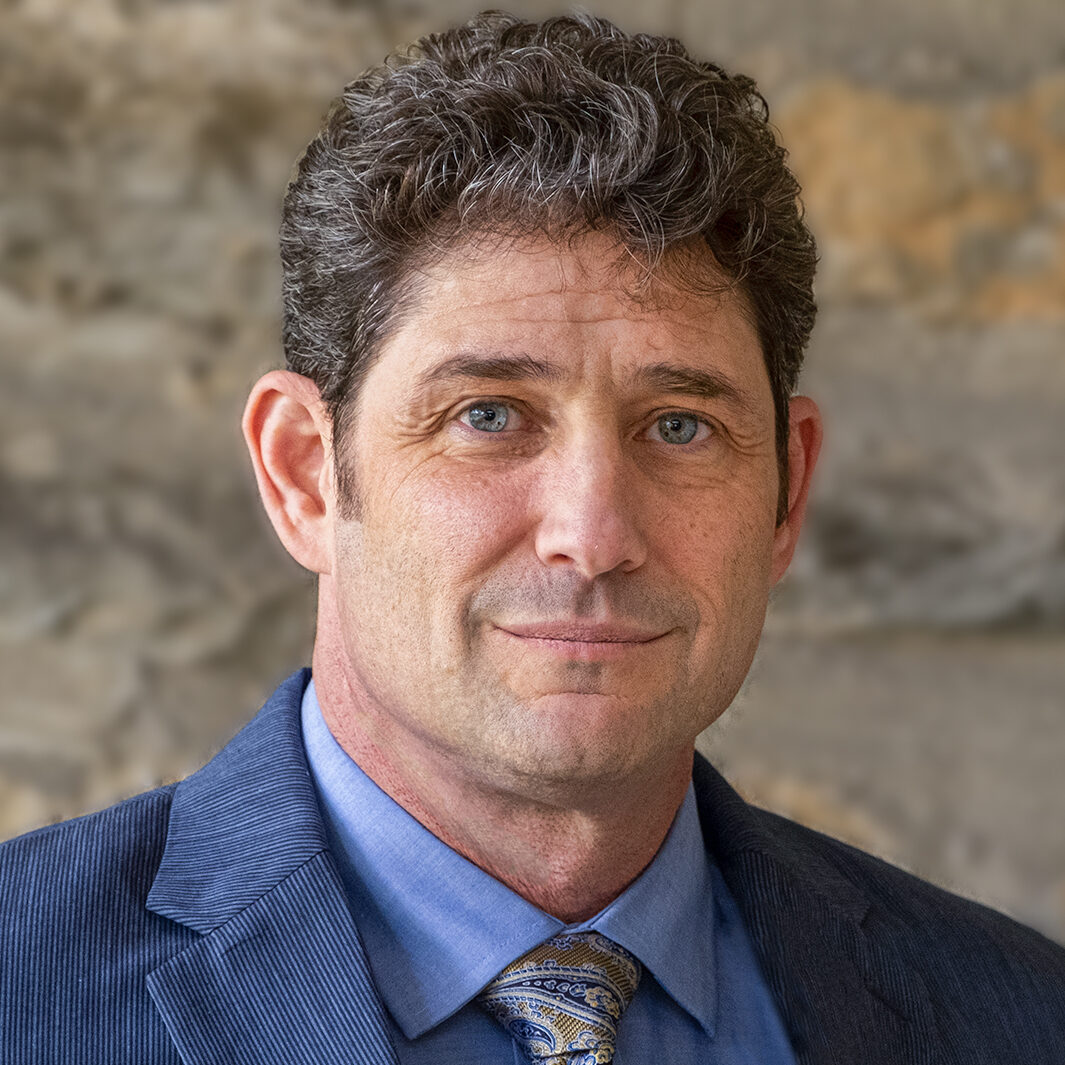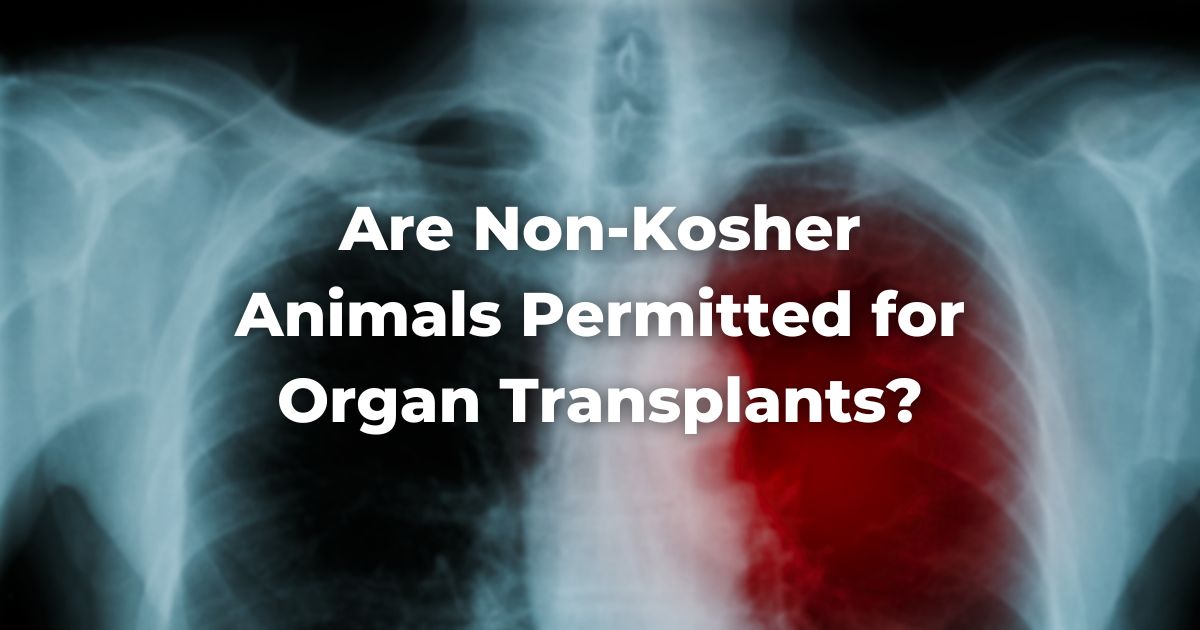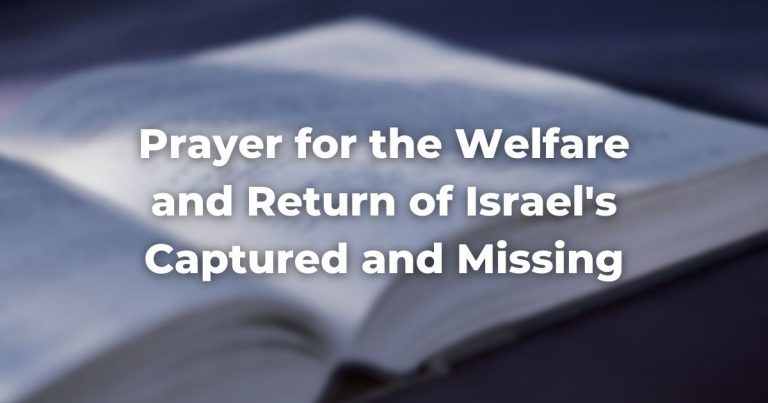My Dad, zikhrono l’vracha, made me choke down a tablespoon of cod liver oil for months during puberty in the hopes that I’d grow taller. I’ve forgiven him, though clearly not forgotten! But, a halakhic question emerges, should I have made a blessing before inserting the spoon in my mouth?
That’s easy—no way! It’s not food! You don’t even make a blessing on the water you drink to wash down a pill or a vitamin (M. Brachot 6:7). Neither foul tasting nor neutral tasting medicines receive a blessing. And if the medicine tastes good because of added sugar or flavoring? There’s a dispute (MishnahA collection of rabbinic teachings edited in Israel around 225 CE. Organized in six sedaraim by subject matter and dealing with both ritual and civil law. Both the Jerusalem and Babylonian Talmud are expansive discussions of the Mishnah. Read more Brurah, 204:11:55). But this rabbi says, “No! It’s not food!”
What happens, though, if the “medicine” is food and is not kosher? Here’s the TalmudReferring to one of two collections, the Jerusalem and Babylonian Talmuds, edited in the 6th century, that contains hundreds of years of commentary, discussion, and exploration of the ideas in the Mishnah. One could describe it as Mishnah + Gemara = Talmud Read more (Yoma 82a): A pregnant woman, on Yom Kippur, has an insatiable (and ostensibly life-threatening) craving for bacon. If nothing else settles her down, she gets her bacon! And since she’s enjoying it, even though it’s treif, she makes a blessing (Shulchan Arukh, Orach Chayim 204:9.)
A few decades ago, a hormone replacement therapy hit the market made from mares’ urine—Premarin (horses are not kosher, and the general rule is that which comes from a non-kosher animal is not kosher [M. Bekhorot 1:2]). Can women avail themselves of such a therapy even though it’s not lifesaving?
As we just saw, the halakhah of kashrut only applies to items that are generally eaten or drunk—unlike mares’ urine (Bekhorot 7a). In other words, even if researchers were to develop a new medicine with the same effect as Premarin but manufactured from (kosher) cow urine rather than mare urine, the cow urine medicine is not halakhically preferable because urine does not fall under the category of kashrut.
Xenotransplantation
The discussion above contains much of the halakhic data needed to determine the permissibility of using animal organs for human transplants, a process called xenotransplantation, and the subject of my first teshuvah. (“Xenophobia” is the irrational fear of others, and a xenotransplant uses organs or tissues from a species other than the host species.)
According to recent data, 17 people die each day in the United States waiting for organ transplants. More than 103,000 people are on the donor waiting list. Moreover, the organ gap between need and availability is widest for children and neonates. Since organ failure is the leading cause of pediatric deaths in the western world, the possibility of growing pigs in laboratory conditions to precisely the right size for a specific child holds incredible promise.
In the two years before I began working on this teshuvah, there had been only two instances of heart xenotransplants from pigs to humans. Since then, both a pig kidney and liver have been transplanted. Although xenotransplants are still far from routine, we are on the cusp of a new era thanks to CRISPR gene-editing technology.
The Halakhic Implications of Xenotransplantation
The Committee on Jewish Law and Standards wanted to get ahead of the question and address its potential for Jewish patients.
At the moment, xenotransplants are resorted to only in cases of pikuach nefesh, when one’s life is in danger. Therefore, given the sanctity of life in our tradition, halakhic permissibility was a foregone conclusion.
Nevertheless, it is important to consider the halakhic category and concerns attendant to the procedure, as well as to explicitly state that the question will need to be revisited if xenotransplants become available for elective conditions that are not lifesaving.
The most useful and common species from which to harvest organs for xenotransplantations is the pig. Although one may not eat a pig’s heart, one may benefit from a pig’s heart replacing your own.
The procedure does not involve eating. If I don’t say a blessing over cod liver oil because it is not considered eating, there is no concern over organ transplants regardless of the source. Just as a blood transfusion is not a violation of the prohibition of eating blood (Lev. 17:10-14), an organ transplant from a pig does not violate the prohibition of eating pork.
The relevant halakhic category is medicine not kashrut.
Once the category has been determined, there are two potential halakhic issues to consider: Tza’ar ba’alei chayim and kilayim, the distress of living creatures and hybridization.
Animal experimentation and slaughter, by definition, are required for xenotransplantation. Fortunately, the Federal Department of Agriculture has strict guidelines for the treatment of animals involved in this process. Unsurprisingly, the conditions required are significantly more humane than the conditions required for kosher slaughterhouses. Thus, our concern for tza’ar ba’alei chayim is being adequately addressed.
The other potential halakhic issue for xenotransplants is the Torah’s prohibition on kilayim, the mating of different species (Lev. 19:19). However, given that xenotransplantation involves neither sexual intercourse nor creates a hybrid pig-person, this concern can be dismissed. Although 2000 years ago, Philo suggested that we’re not to eat pigs lest we become piggy, a pig heart does not a piggy person make.
The teshuvah concluded that xenotransplants are halakhically permissible, but like all risky medical procedures, particularly until xenotransplantations become routine, a patient can decide to forego treatment.
Author
-

Shai Cherry taught Jewish Thought for the first half of his career at Vanderbilt, UCLA, and the University of San Diego. While in Los Angeles, he complemented his doctorate in Jewish Thought from Brandeis with rabbinic ordination from the Ziegler School. He has two books and is the featured lecturer for The Great Courses' Introduction to Judaism. He serves as the rabbi of Congregation Adath Jeshurun in Elkins Park, PA.
View all posts https://www.amazon.com/Torah-Through-Time-Understanding-Commentary-ebook/dp/B001O2SAVY/ref=sr_1_2?crid=248O0RMUFAINX&dib=eyJ2IjoiMSJ9.G_YvUHQH-DPpXHWJui0mf9se0NQyA7yIK2FPZQVwRtu9w9z9dY26WsD8HUiHADI2_nHDmXdVxYp2tMyC73U_kr-x-1RbpNYVIS79awtDsZg2QBFUQyjpq-BO1_O0mL4Dme16lkLp4qBGMqQUxc88ftZahsGNqblx4wUPvaXd2KB7M25j9M_AWwuSaVG5mmejw_bcv0Qb3oqW8FQ7-agpkIXdoj-O6iWF3asO9eDNn3zC5sVjN_jbdoRXSTD7tl9ZlweJcmKDtsvfi-s-bC2pz8sTftfP8urwj9sct6sqbA8.suzAFmK6HpETlzK6OXhEq3-RszPywRQR35tPdOncVqk&dib_tag=se&keywords=shai+cherry&qid=1708018518&sprefix=shai+cherry%2Caps%2C495&sr=8-2&%20https://www.amazon.com/Coherent-Judaism-Constructive-Theology-Halakhah/dp/1644693402/ref=sr_1_1




